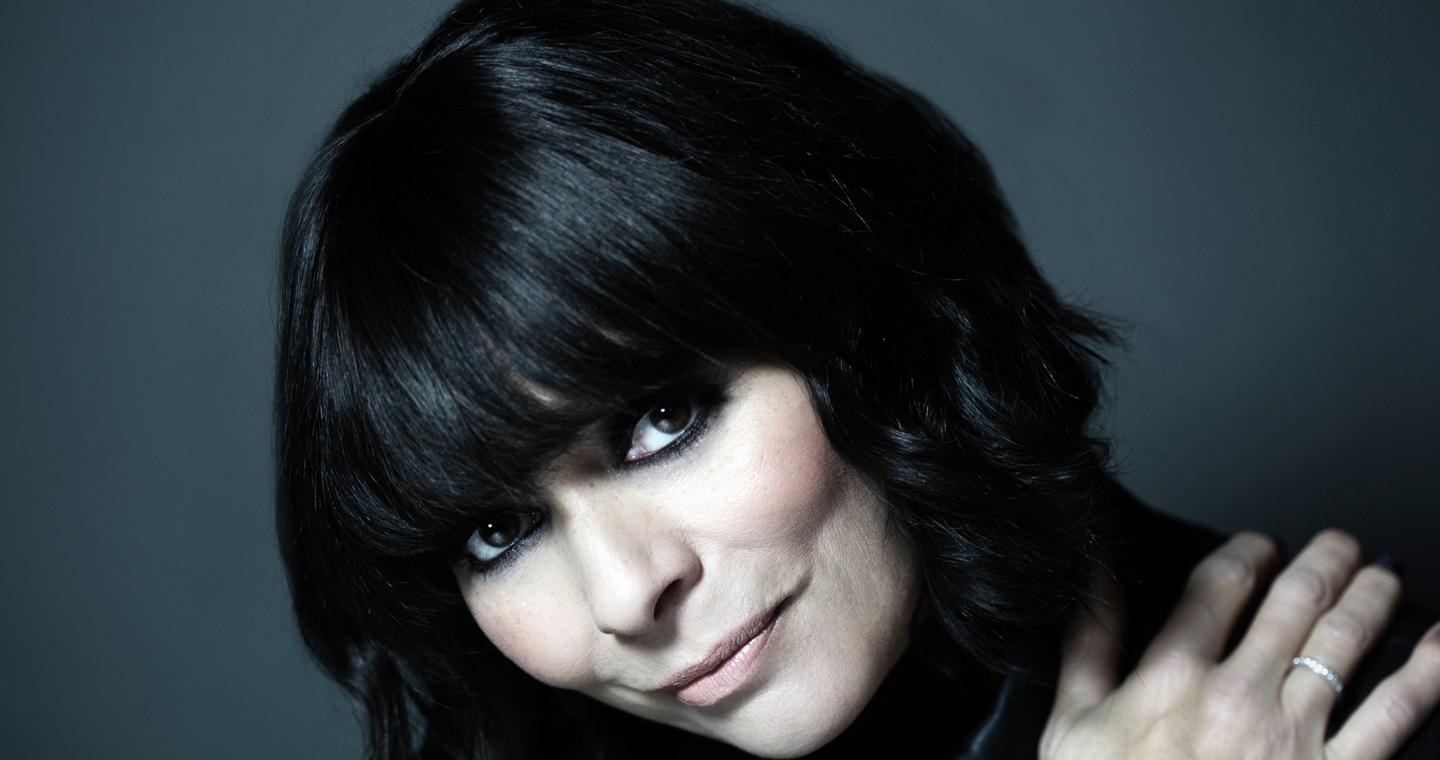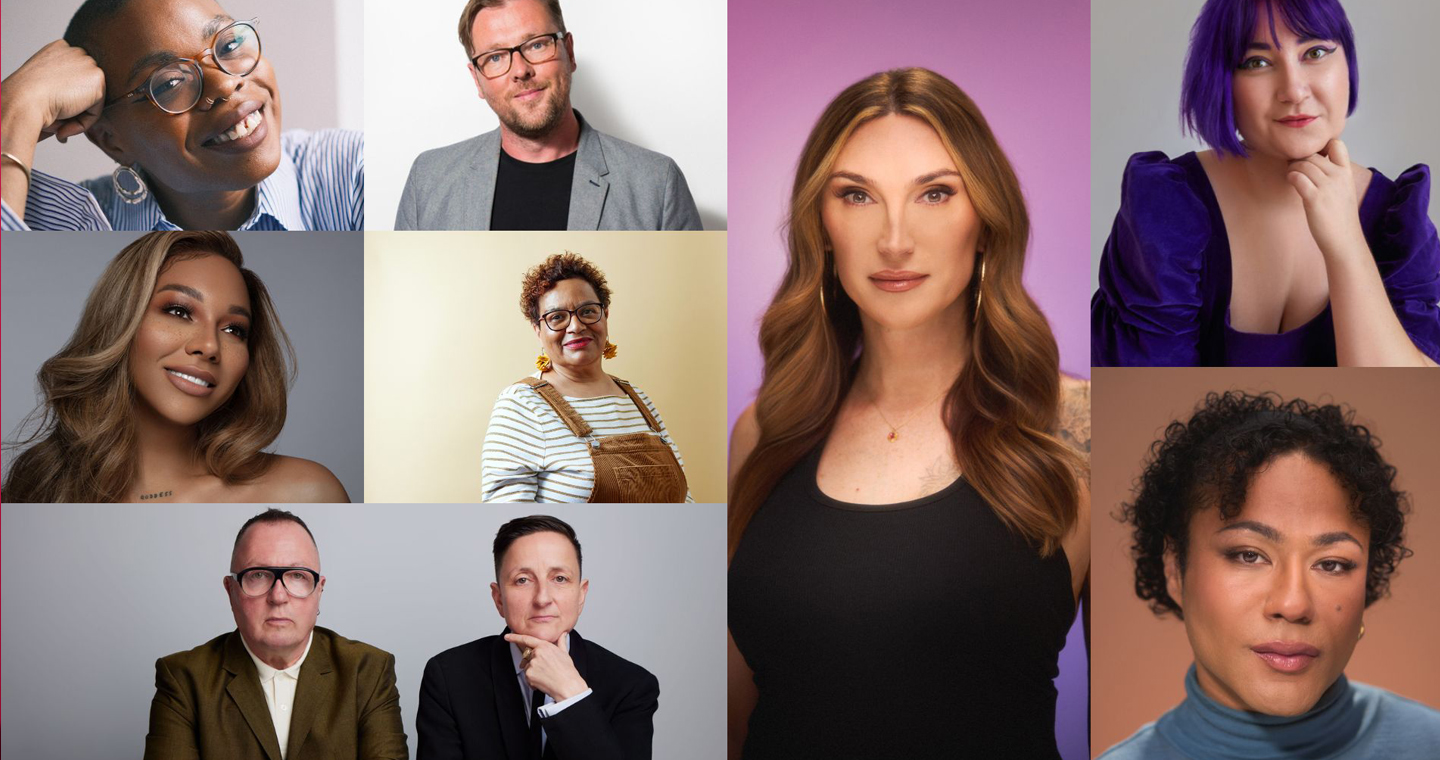For a generation raised on ambitious 90s pop, acid house, and hip-hop, Betty Boo needs no introduction. Like a fresh breeze flowing through an industry consumed by smugness and excess during the previous decade, she showed you could be weird, whip-smart, and unorthodox, yet still blossom into a music icon.
Talking via Zoom from her Wiltshire home, which I approvingly notice has a decent display of twinkling lights, Alison Clarkson muses about taking up Betty’s mantle again, telling me she gets fidgety if still for too long. Whether it’s tennis or making beats, she needs to keep moving. After a few years away from the limelight, it seems like she’s again picking up momentum.
Clarkson’s journey didn’t begin with an army of stylists, primetime TV talent competitions, or industry showcases. It started, fittingly, where the best musical revolutions burst into being: in a small room, surrounded by equipment and channelling an obsession.
“I was always making tapes, chopping stuff up, taping bits off pirate radio,” Clarkson recalls. Her father’s record collection (eclectic, global, and sometimes baffling, as they always should be) became a towering stack of material. “There’d be Motown next to surf rock next to, like, ancient French pop. I’d try to glue it all together, just to see what stuck.”
Back then, the pop world had retreated into conformity after the creative surge and technological wonders of the 80s. Young women were meant to sing, not MC; be muses, not producers. Clarkson hadn’t received the memo. “I didn’t know the rules, so I didn’t know I was breaking them. I just wanted to fill the space with something nobody else was hearing.”
What we now refer to as Bedroom Pop was a rarity, especially if it didn’t involve spotty lads with guitars. But it was both a necessity and an adventure. “I didn’t fit in at school, so I made my own thing at home. Then, when I started performing, people acted like I’d dropped in from another planet. But I’d seen those worlds in hip-hop and early electro… kids in New York, people with nothing but a breakbeat and a pile of records, making magic.”
With a visual aesthetic which melded Funkadelic cartoons, Anime, and Atom-Punk, Betty Boo’s fearless and frantic early singles swept almost everything else out of the way.
“There was real joy in the shock value,” Clarkson confesses. “Not just to stand out for the sake of it, but to say: ‘if I can, you can.” She admits it was all quite chaotic, though. “One week I was piecing songs together in my room, the next, I was getting chased by crews for TV shows and learning how to pose for Smash Hits. It didn’t feel real.”
When I highlight that she, Tim Simeon of Bomb the Bass, and Mark Moore of S'Express forever changed the face of British music by embracing sampling technology to create something new from the old, she counters by pointing out the trio were all signed to Rhythm King and of Eurasian descent. Standing out meant she didn’t have any real mates. It was just her and her technology.
“I always felt like an outsider. I got bullied a lot, especially for rapping, because I didn’t look like anyone else. There were sets of girls who hated it.” Songs like Doin’ the Do were a direct rebuttal to those doubters. “I think it just made me more determined. Music gave me an identity when I needed it most.”
When the joyous, cocky, and sonically borderless, when Doin’ the Do stormed into the singles charts in 1990, it was a measure of defiance for legions of awkward kids. It’s bewildering to think that nobody had previously managed to marry so many different underground styles into a credible chunk of pop music. “I just wanted to make a fun record, something that would get a reaction,” she shrugs. “We had this mad energy, sampling surf guitars, random sound effects, nothing was off-limits. If someone told me ‘you can’t put that in a song,’ I made sure to do exactly that!”
Clarkson is quick to credit hip-hop as her creative engine. It taught us that you could build anything, and that your record collection is a treasure chest. “For me, that meant 60’s pop, comic book samples, cheesy movie lines. If they made me laugh or gave me goosebumps, they went in.”
Stardom arrived because of, not despite, Clarkson’s refusal to flatten herself to fit pop’s conventions. But being out front as Betty Boo brought consequences. The pressure to “pick a lane” - to shed the MCing, or dress less eccentric, or let a producer “finish” the tracks - was relentless. This was a pre-Girl Power culture. Clarkson stayed stubborn. “If people had a problem, I doubled down. When fans started saying: ‘I try to be different, like you.’ That mattered.”
Thirty-five years after this star turn, she’s gracefully drifting back onto the scene. In 2022, she released Boomerang on her own label, an album that took a lot of people by surprise. This was followed last year by Rip Up the Rule Book, which signalled that she wasn’t going anywhere. Both provided clear statements of intent, laser-focused rhymes, and a cheeky sample or three. The intervening years, which were spent writing songs for a range of chart-topping artists, had done little to quell her enthusiasm for penning high-quality pop bangers. There have even been a few live shows…
“If you’d told me at twenty I’d be back onstage in my fifties with a new album and a tour, I’d never have believed you,” she laughs. “But time... it just disappeared. I hit my 50th birthday before lockdown and thought: ‘What have I been doing, where did it all go?’”
The genesis of this return wasn’t preordained. “I always wanted to make another record, but it just took me ages,” she admits. “I’d started writing again with Andy Wright, my co-writer and producer. At first, I wasn’t sure if it’d work out. But writing, even from a distance, was exhilarating. It was like rediscovering my voice, and realizing that fifty-year-old Betty Boo has so much more to say.”
That artistic rebirth wasn’t without its doubts. “I was so young when Boomania happened. I thought: ‘Can I really do this again? Will people even care?’ But I listened to advice from other artists… your music is in your DNA. Just go with it.”
Much has changed in the decades since Boomania shook up the pop landscape, and few have had front-row seats to the industry’s transformation like Betty Boo. “Record labels? Well, it’s just not for me anymore. They’re obsessed with Instagram numbers. Sure, if you want millions invested in promo, maybe that’s the way. But I run my own label. I put out my own special editions. I love the freedom.”
There’s real conviction in her advice for younger musicians. “You don’t need a label anymore. Just make music, put it on Spotify, YouTube, Instagram. If you love it, someone else will. The rules, the labels, the idea that you’re past it at 23 if you’re a pop star, these are all things the industry made up. I’m making new music now. Why should I be a ‘heritage artist’ just because I’m in my fifties?”
Her candour on the business side of pop doesn’t hide her excitement about the possibilities for artists today: “It’s an exciting time. You can directly reach your audience. You set your own pace. There’s no one saying ‘No’ or that you have to fit a mould. Art is what matters, not just the business.” The joy, she says, is in “making music that comes from a different place, and thinking outside the box.”
But perhaps most surprising—even to herself—is how touring has become the centrepiece of her newfound creativity and happiness. “Touring used to frighten me,” she admits. “When I was young, everything happened so quickly. I did lots of TV, promotion, but I didn’t really tour. These days, everything’s different. It’s liberating. I’m doing things like mixing new songs with old hits, and the crowds just love it. The energy is seamless.”
There’s a thrill to standing on stage as an older, wiser performer. “I wasn't sure how the new stuff would go down next to the classics, but I didn’t get any pushback. People are up for it. There’s something about seeing people just dance to your music, old or new, that makes it all worth it.”
Perhaps, the journey back to music has been as much about personal growth as professional triumph. “I think these things have brought me happiness in ways I didn’t expect. I didn’t believe it was possible to find this much joy in performance again.” She says she’s happy where she is. There’s no compulsion to compete or prove anything.
Betty Boo’s tracks offer sonic puzzles, crammed with fragments of long-lost music and echoes of the past. A pop banger can still be quite punk, even if powered by an electronic beat or schoolyard rhyme. Throw in a crafty lyric or two, which skewer perceptions and signal that it’s OK to feel empowered, then we are in business.
She’s proof that pop’s most creative spirits can’t be bound by cultural cycles or labels. This is a career embracing joyous unpredictability, bold experimentation, and indomitable independence that propelled her into the charts, and (maybe) now makes her more relevant than ever.
Betty Boo plays Green Door Store in Brighton on Sun 23 Nov and London’s Bush Hall on Sun 14 Dec, as part of her 2025 tour. The new reissues of her Boomania and GRRR! It’s Betty Boo albums are available right now.

Stuart Rolt
Featured What's On
Stay in the loop
Keep up to date with latest news, guides and events with the SALT newsletter.






